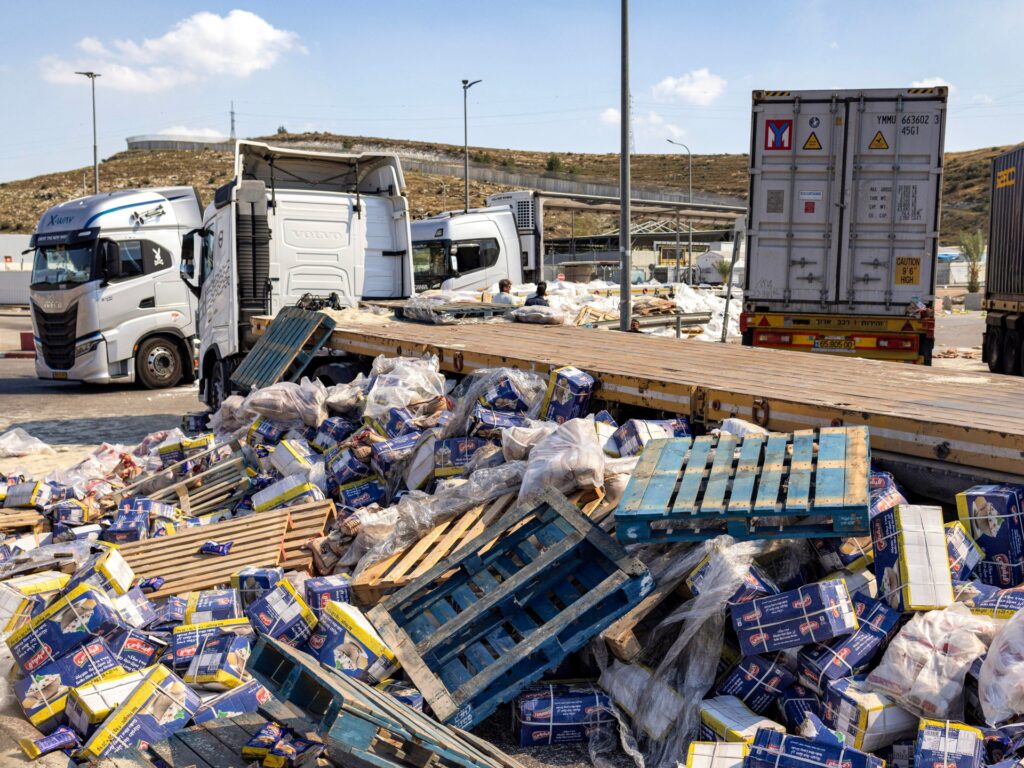The spokeswoman for the United Nations Office for the Coordination of Humanitarian Affairs (OCHA) in Gaza, Olga Cherevko, warned of a complete cessation of relief work in the Strip in the coming days if fuel continues to not enter.
This came during an interview with Anadolu Agency via video conference yesterday, Thursday, where Shirevko stressed the urgent need to open the border crossings leading to Gaza, and increase the flow of humanitarian aid on a large scale in the Strip.
The situation in Rafah
Sherevko referred to the current situation in the city of Rafah, south of the Gaza Strip, after the start of the Israeli operation there on May 6, which pushed its residents to forced displacement.
It reported that more than 450,000 people have left the city since that date, as there were about 1.5 million people, including about 1.4 million displaced people.
UN teams described the extent to which the situation in Rafah changed after the residents left, as areas that were crowded with people and refugee tents became completely empty.
Sherifko explained that the displaced people headed to the areas of Al-Mawasi, the city of Khan Yunis, and the central parts of Gaza, carrying with them the least they had and without shelter or basic resources.
She stressed that the living conditions in the places they arrived are very bad, as there is no water, food, or shelter, which makes it difficult to describe these conditions in words.
Since May 6, Israel has been implementing in Rafah what it considers a “limited military operation,” which led to its control of the Palestinian side of the crossing and its closure to humanitarian aid.
Aid trucks waiting to enter
Cherevko confirmed that they were unable to bring humanitarian supplies into Gaza during recent days, due to the closure of all crossings leading to the Strip, which raised “great concern” about the lack of humanitarian aid supplies.
She also spoke about the closure of the Rafah land crossing after Israel took control of it on May 7, stressing that there is now an urgent need to bring fuel and food into Gaza, and warned that all relief work will stop completely within two or three days if fuel is not brought in.
She stressed the need to open the border crossings leading to Gaza and increase the flow of humanitarian aid on a large scale to the Strip, noting that even before the closure of the Rafah crossing, humanitarian aid was not reaching Gaza at the rate that the population needed.
Infrastructure destruction
Sherifko shed light on the tragic conditions in the Gaza Strip, noting the destruction of most of the infrastructure facilities there, and pointed out that less than a third of hospitals in Gaza are able to provide partial services, and no hospital can provide service at full capacity.
According to the Palestinian government in Gaza, only two government hospitals out of 35 before the war currently operate in the Strip, with small private hospitals providing primary care services.
Sherifko stressed that the Palestinians in Gaza have lost hope, as there is no longer a safe place after people have been displaced repeatedly in search of safety, which makes the need for international assistance urgent.
She concluded her speech by appealing to the world not to forget the people in Gaza, and to remain on their agenda.
Since October 7, 2023, Israel has been waging a devastating war against the Gaza Strip, and the war has so far resulted in the martyrdom of 35,303 Palestinians, and the injury of 79,261 others, most of whom are children and women. The aggression also led to massive destruction of the Strip’s infrastructure, according to Palestinian and international reports.

